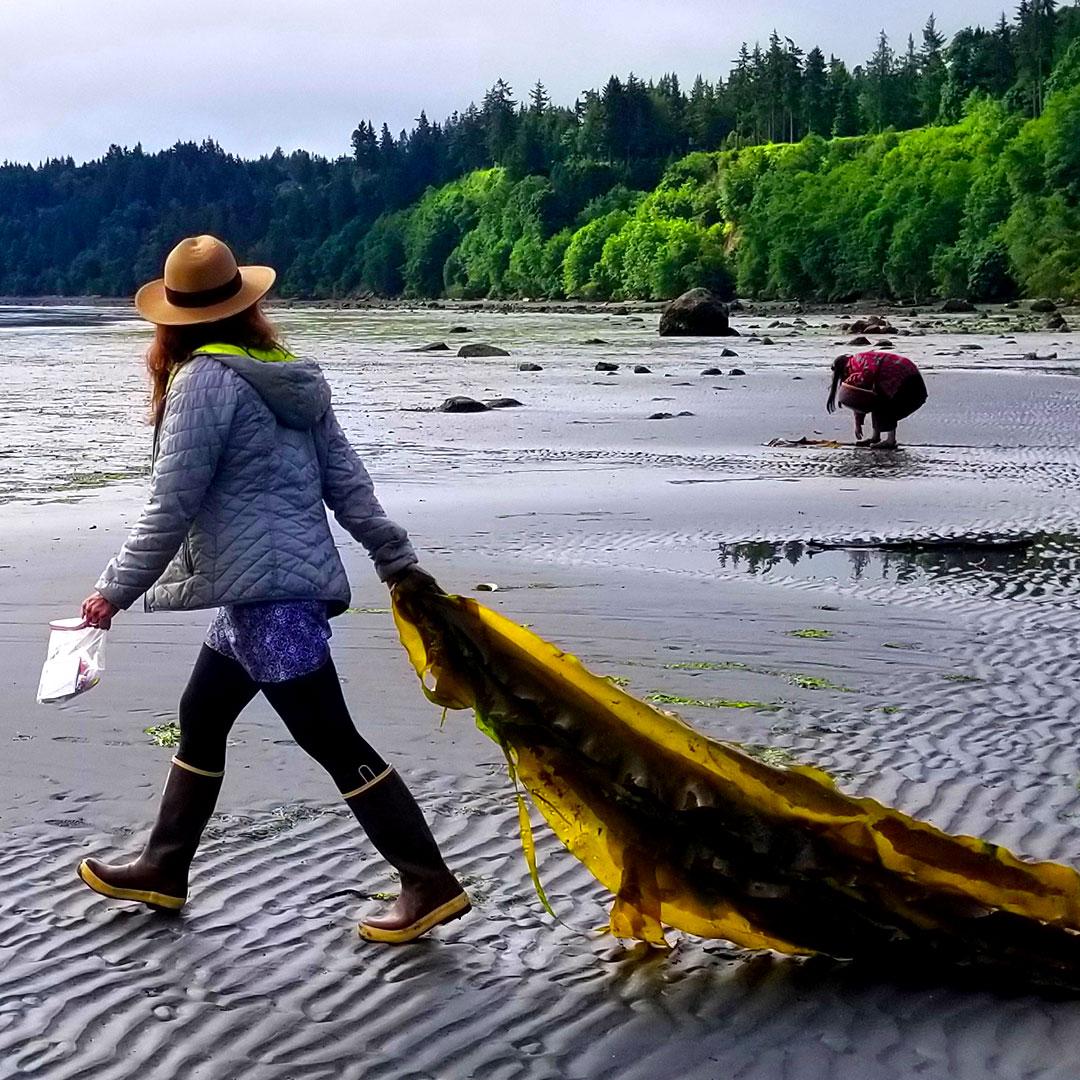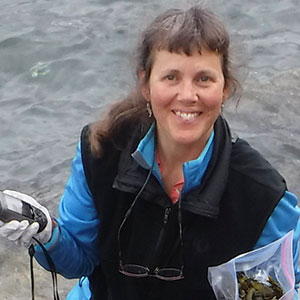
Event Details
When:
-
Location:
Online: Zoom
In-Person at WWU:
Academic Instructional Center West
Room 204
Price:
Free
Brought to you by:
College of the Environment, WWU Alumni Association
Description
Check out this video to watch the Environmental Speaker Series Presents: Salish Sea Seaweeds.
Salish Sea seaweeds have been used as food, flavorings, medicine, and fishing gear since time immemorial. Today seaweeds are riding a tidal wave of interest. Spotlighted in the New York Times and chic restaurants, featured in chips, dips, and sips, "sea vegetables" are also being celebrated and revitalized as a traditional food by Tribes and First Nations, and Asian and Pacific Islander community members.
Mmm-mariculture in the Salish Sea is part of a global wave, as kelp is being farmed for food, pharmaceuticals, habitat restoration, and remediation of ocean acidification in shellfish farms. Despite the rising interest in edible seaweeds, there is limited information on seaweed contaminate levels in the Salish Sea. Without this knowledge, consumers are left in the dark. Health-based consumption advisories cannot be determined.
A recent study, led by Principal Investigator, Jennifer Hahn, and a team of researchers, scientists, and Salish Sea Tribe and First Nation community members helped answer a question whose time has come: Is Salish Sea seaweed safe to eat? Where? How much?
The Environmental Speaker Series is free and open to the public. Talks are held each Thursday at 4:30pm in Academic Instructional Center West, room 204. Join us at WWU or online on Zoom!
Featuring:

Jennifer Hahn, Speaker
Jennifer Hahn is a writer, seaweed researcher, Alaska wilderness guide, wild food forager, and teaching professor at WWU's Fairhaven College. She teaches courses in Wild Food ecology and Sustainable foodways. Jennifer also leads Seaweed workshops for Salish Sea Tribes and The North Cascade Institute. A puzzling question raised in workshops--Is Salish Sea seaweed safe to eat? — inspired her to immerse herself in a toxicology research project lasting six years.
Working with a dream team at the College of the Environment, The SeaDoc Society, Border Policy Research Institute, NOAA, Washington Department of Health, WA Department of Fish & Wildlife, and University of California Davis, plus 18 Tribes and First Nations who generously gave advisement and support—the first cross-border, cross-culture Seaweed toxicology study was born. Jennifer will share the story of these results.

Accommodations and Other Details
Contact the WWU Alumni Association for this event if you have questions or need disability accommodations by calling (360) 650-3353 or emailing Alumni@wwu.edu.
Advance notice for disability accommodations and special needs is greatly appreciated. Please indicate your special needs on the registration form.
There will be auto-captions available for the Zoom webinar.
Limited paid parking is available in the C lots at the south end of campus and in lots 6V and 7G at the north end of campus. Western provides comprehensive parking details—including lot locations, applicable fees, and campus map. Please note that parking in the C lot and 12A by Fairhaven College is free after 4:30pm on weekdays and all hours on weekends.